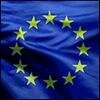Другие материалы рубрики «English»
-
 Nyaklyayew not allowed to use Internet, talk to media
Nyaklyayew not allowed to use Internet, talk to media
Former presidential candidate Uladzimir Nyaklyayew, who was unexpectedly released from the KGB detention center and placed under house arrest on Saturday... -
 Natallya Radzina thanks supporters for solidarity
Natallya Radzina thanks supporters for solidarity
Ms. Radzina told that she had been forced to make a written pledge not to disclose details of the investigation...
- Lawyer hopes that she will be allowed to meet with Nyaklyayew oftener
- Father describes Iryna Khalip`s home confinement as more sophisticated torture
- Lukashenka wants to use political prisoners as bargaining chips in negotiations with West, Milinkevich warns
- Khalip, Nyaklyayew released from KGB jail
- Journalist Natallya Radzina released on recognizance
- Nyaklyayew thanks supporters
- Attack on Nyaklyayew should be investigated as part of riot case, prosecutor general says
- Presidential candidates are not immune from criminal prosecution, Constitutional Court chairman says
- Three new books in series devoted to renowned Belarusians launched in Minsk
- People light candles, pray to mark one-month anniversary of crackdown on post-election protest in Minsk’s Independence Square
English
National Bank head downplays threat of economic sanctions
 Pyotr Prakapovich, head of the National Bank of Belarus (NBB), has expressed strong doubts that the European Union will move to impose economic sanctions against Minsk.
Pyotr Prakapovich, head of the National Bank of Belarus (NBB), has expressed strong doubts that the European Union will move to impose economic sanctions against Minsk.
“The introduction of economic sanctions in the 21st century is simply preposterous to say the least,” Mr. Prakapovich told reporters in Minsk on January 28. “I don’t think that the EU will resort to the measure.”
The NBB head downplayed the impact that the possible sanctions might have on the Belarusian economy.
In the context of an open global economy, the sanctions will not produce the desired effect, he said. “But another thing is that the sanctions can affect bilateral relations,” he said. “Our current trade with the EU amounts to some $15 billion, and we have an import surplus: we buy more than we sell. The sanctions will mean that Europe’s deliveries to Belarus, which primarily account for equipment, will drop by at least $8 billion. And this will mean that we will buy the equipment, which we currently purchase from them and, thus, help them preserve dozens thousands jobs, from other countries. It is not a problem to buy this equipment from China and many other countries.”
“But we benefit from our cooperation with the EU and we plan to significantly increase mutual trade, which may reach $30 billion to $40 billion by the end of the ongoing five-year period,” said Mr. Prakapovich.
He suggested that the EU would not dare to move from the “political” declarations to specific economic sanctions.
“We live in the epoch of globalization and openness of finance, trade, services and other markets,” he said. “It is just impossible to impose sanctions today. It is true, it is possible to make work difficult by blocking access to markets temporarily, but some time will pass and we will find other markets. In the past several years, we have learned how to do this. And everybody saw that we can always get round sanctions by tapping in new markets and finding new partners.”
Mr. Prakapovich denied that European banks had become reluctant to issue loans to the Belarusian economy. “Today every bank seeks to preserve its clients," he said. "Everybody struggles for clients and looks for new ways to make money. The matter is not under consideration today. Nobody even thinks about it.”
On January 20, the European Parliament adopted a strong-worded resolution condemning the Belarusian government’s post-election crackdown on opponents.
The MEPs called on the EU to impose an asset freeze on Belarusian government officials, members of the judiciary and security officers involved in the government’s “violent” post-election crackdown. Lifting these measures should be conditional upon the release of the government’s political opponents, they said.
The MEPs suggested that further targeted economic sanctions against the Belarusian government should be considered, such as a freeze of all financial aid provided by the International Monetary Fund, the European Investment Bank and the European Bank for Reconstruction and Development.




В настоящее время комментариев к этому материалу нет.
Вы можете стать первым, разместив свой комментарий в форме слева